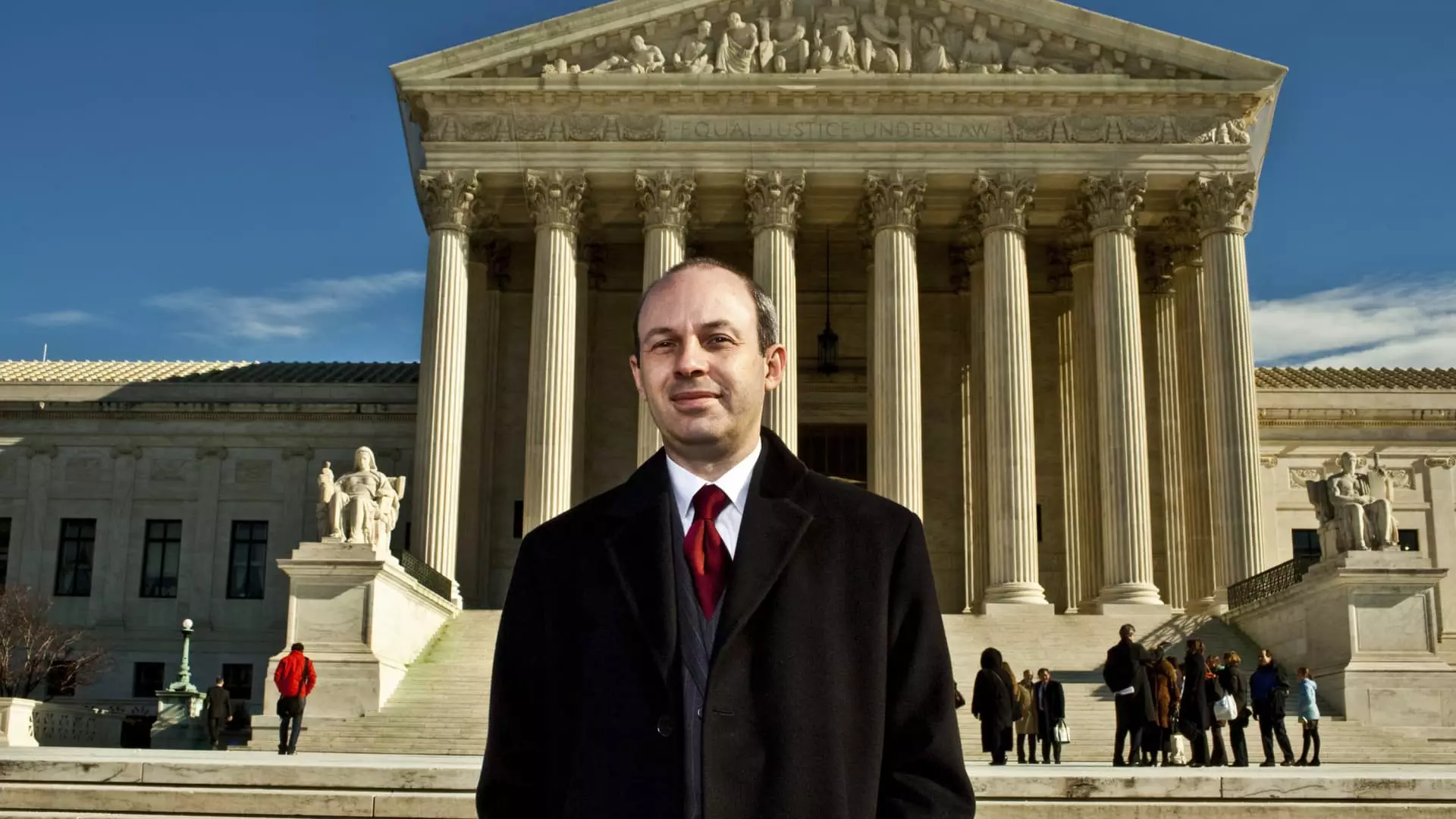The legal landscape is often marked by intriguing stories that highlight the complexities surrounding privilege and accountability, and the recent developments in the case against noted Supreme Court lawyer Tom Goldstein exemplify this dynamic. The arrest and detention of Goldstein without bail is particularly striking, as it intertwines elements of high-stakes gambling, cryptocurrency, and legal ethics.
Tom Goldstein, known for his impressive legal prowess as a frequent advocate before the United States Supreme Court, now finds himself embroiled in serious legal woes stemming from allegations of tax evasion. The charges involve claims that he failed to report substantial poker winnings, alongside misusing his law firm’s funds for personal gambling debts—a scenario that raises fundamental questions about fiscal responsibility and legal ethics.
In January, Goldstein was indicted on these federal tax charges that reportedly amount to over $5.3 million. The implications of these allegations extend beyond mere financial impropriety; they touch upon the intricate balance between a legal professional’s obligations to the state and the sanctity of personal privacy and wealth management. As a noted attorney whose influence permeates the highest courts, the ramifications of Goldstein’s case are magnified, indicating how power can be precariously intertwined with the law.
The recent federal ruling by Chief Magistrate Judge Timothy Sullivan, ordering Goldstein’s arrest, was filled with gravity. Sullivan’s assessment of Goldstein as a “serious” flight risk must not be taken lightly. Prosecutors pointed to a series of undisclosed cryptocurrency transactions, which included movements of over $8 million and significant transfers despite existing judicial restrictions. This not only portrays a blatant disregard for the legal process but also highlights potential attempts to obscure financial dealings during a crucial period of investigation.
Goldstein’s alleged control over two cryptocurrency wallets raises essential discussions about digital finance and transparency in legal matters. The nature of cryptocurrency, often celebrated for its anonymity and freedom from governmental oversight, becomes a double-edged sword in this context. It’s suggested that Goldstein’s swift and substantial transactions might be construed as efforts to manipulate or intimidate potential witnesses, a concern that accentuates the notion of justice being at risk when wealth is wielded without transparency.
During a bail hearing, Goldstein reportedly denied any ownership or control over the cryptocurrency wallets in question. This denial, however, may have exacerbated perceptions of his credibility. As noted by Judge Sullivan, the evidence suggesting that Goldstein violated release conditions was “clear and convincing.” Moreover, the court’s assertion that there are no combinations of conditions that can assure compliance indicates a profound lack of trust in Goldstein’s commitments.
This skepticism reflects broader societal concerns regarding the accountability of those within the legal profession, particularly high-profile individuals. If a seasoned attorney struggles to adhere to legal protocols, one must ponder the message it conveys regarding professional integrity within the legal system.
Goldstein’s financial dealings are further complicated by the nature of the cryptocurrency transactions. Prosecutors detailed an extensive history of substantial transfers from his undisclosed wallets, including significant sums sent shortly after his indictment. This raises serious ethical considerations surrounding the management of wealth and the potential for using financial resources to influence legal outcomes.
The murky waters of cryptocurrency blurring the lines between legality and illegality exemplify modern challenges faced by the legal system. It urges a reconsideration of legal frameworks as they adapt to rapidly evolving financial technologies. As Goldstein’s case unfolds, it could offer pivotal insights into how the justice system addresses issues of transparency, particularly regarding individuals with substantial financial means.
Tom Goldstein’s ongoing legal challenges serve as a reminder of the precarious balance between privilege and accountability in the legal field. The presiding judge’s concerns, grounded in evidence of Goldstein’s financial maneuvers, underscore broader implications for legal professionals navigating similar waters. As Goldstein’s case progresses, it is likely to prompt discussions at the intersection of ethics, finance, and law—ultimately shaping the narrative of accountability within the legal community.



Leave a Reply